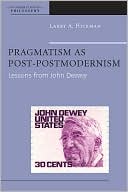Category Books
- Fiction Books & Literature
- Graphic Novels
- Horror
- Mystery & Crime
- Poetry
- Romance Books
- Science Fiction & Fantasy
- Thrillers
- Westerns
- Ages 0-2
- Ages 3-5
- Ages 6-8
- Ages 9-12
- Teens
- Children's Books
- African Americans
- Antiques & Collectibles
- Art, Architecture & Photography
- Bibles & Bible Studies
- Biography
- Business Books
- Christianity
- Computer Books & Technology Books
- Cookbooks, Food & Wine
- Crafts & Hobbies Books
- Education & Teaching
- Engineering
- Entertainment
- Foreign Languages
- Game Books
- Gay & Lesbian
- Health Books, Diet & Fitness Books
- History
- Home & Garden
- Humor Books
- Judaism & Judaica
- Law
- Medical Books
- New Age & Spirituality
- Nonfiction
- Parenting & Family
- Pets
- Philosophy
- Political Books & Current Events Books
- Psychology & Psychotherapy
- Reference
- Religion Books
- Science & Nature
- Self Improvement
- Sex & Relationships
- Social Sciences
- Sports & Adventure
- Study Guides & Test Prep
- Travel
- True Crime
- Weddings
- Women's Studies
Pragmatism as Post-Postmodernism: Lessons from John Dewey »

Authors: Larry Hickman
ISBN-13: 9780823228423, ISBN-10: 0823228428
Format: Paperback
Publisher: Fordham University Press
Date Published: December 2007
Edition: (Non-applicable)
Author Biography: Larry Hickman
Larry A. Hickman is director of the Center for Dewey Studies and Professor of Philosophy at Southern Illinois University, Carbondale. He is the author of Modern Theories of Higher Level Predicates, John Dewey's Pragmatic Technology, and Philosophical Tools for Technological Culture. he is also the editor of Technology as a Human Affair, Reading Dewey, The Essential Dewey (with Thomas Alexander), the electronic edition of The Collected Works of John Dewey, 1882-1953, and the three volumes of The Correspondence of John Dewey, 1871-1952.
Book Synopsis
Larry A. Hickman presents John Dewey as very much at home in the busy mix of contemporary philosophy—as a thinker whose work now, more than fifty years after his death, still furnishes fresh insights into cutting-edge philosophical debates. Hickman argues that it is precisely the rich, pluralistic mix of contemporary philosophical discourse, with its competing research programs in French-inspired postmodernism, phenomenology, Critical Theory, Heidegger studies, analytic philosophy, and neopragmatism—all busily engaging, challenging, and informing one another—that invites renewed examination of Dewey's central ideas.Hickman offers a Dewey who both anticipated some of the central insights of French-inspired postmodernism and, if he were alive today, would certainly be one of its most committed critics, a Dewey who foresaw some of the most trenchant problems associated with fostering global citizenship, and a Dewey whose core ideas are often at odds with those of some of his most ardent neopragmatist interpreters.In the trio of essays that launch this book, Dewey is an observer and critic of some of the central features of French-inspired postmodernism and its American cousin, neopragmatism. In the next four, Dewey enters into dialogue with contemporary critics of technology, including Jürgen Habermas, Andrew Feenberg, and Albert Borgmann. The next two essays establish Dewey as an environmental philosopher of the first rank—a worthy conversation partner for Holmes Ralston, III, Baird Callicott, Bryan G. Norton, and Aldo Leopold. The concluding essays provide novel interpretations of Dewey's views of religious belief, the psychology of habit, philosophicalanthropology, and what he termed 'the epistemology industry.'
Table of Contents
Introduction 1
Postmodernism
Classical Pragmatism: Waiting at the End of the Road 13
Pragmatism, Postmodernism, and Global Citizenship 30
Classical Progmatism, Postmodernism, and Neopragmatism 48
Technology
Classical Pragmatism and Communicative Action: Jurgen Habermas 65
From Critical Theory to Progmatism: Andrew Feenberg 79
A Neo-Heideggerian Critique of Technology: Albert Borgmann 92
Doing and Making in a Democracy: John Dewey 112
The Environment
Nature as Culture: John Dewey and Aldo Leopold 131
Green Pragmatism: Reals without Realism, Ideals without Idealism 153
Classical Pragmatism
What Was Dewey's Magic Number? 181
Cultivating a Common Faith: Dewey's Religion 191
Beyond the Epistemology Industry: Dewey's Theory of Inquiry 206
The Homo Faber Debate in Dewey and Max Scheler 231
Productive Pragmatism: Habits as Artifacts in Peirce and Dewey 241
Notes 255
Index 277
Subjects
 Educational Theory, Research & History
Educational Theory, Research & History  Education - History
Education - HistoryNonfiction
 Philosophy
Philosophy  European & American Philosophy
European & American PhilosophyNonfiction
 Philosophy
Philosophy  General & Miscellaneous Philosophy
General & Miscellaneous PhilosophyNonfiction
 Philosophy
Philosophy  Philosophical Positions & Movements
Philosophical Positions & MovementsNonfiction
 Philosophy
Philosophy  Renaissance & Modern Philosophy
Renaissance & Modern PhilosophyPhilosophy
 European & American Philosophy
European & American Philosophy  American Philosophy
American PhilosophyPhilosophy
 General & Miscellaneous Philosophy
General & Miscellaneous Philosophy  Intellectual Movements
Intellectual MovementsPhilosophy
 Philosophical Positions & Movements
Philosophical Positions & Movements  Postmodernism
PostmodernismPhilosophy
 Renaissance & Modern Philosophy
Renaissance & Modern Philosophy  Modern Philosophy - 19th Century
Modern Philosophy - 19th CenturyPhilosophy
 Renaissance & Modern Philosophy
Renaissance & Modern Philosophy  Modern Philosophy - 20th Century
Modern Philosophy - 20th Century
